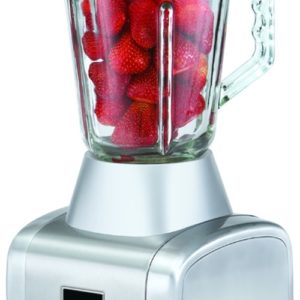
What is Soylent?
Robert Rhinehart developed Soylent with the goal of creating a food substitute, which meant he had to develop a drink that contained all of the essential nutrients to the human body. Initially, Rhinehart, along with some tech buddies, were hoping to create a startup company that produced low-cost cellphone towers, but the idea failed before ever reaching fruition. However, the team still had some leftover startup capital and decided to keep trying out new ideas. Cutting down costs proved to be a continual challenge though, specifically in regard to groceries.
So Rhinehart experimented with different methods of narrowing the grocery list down to bare necessities. Soon he was spending time researching nutrition, and eventually he put together a list of 35 nutrients that were crucial to survival. He started thinking of these nutrients as individual components, rather than ingredients in food. He ordered powder and pill forms of all these ingredients on the Internet and blended them with water. He then began living off the resulting cocktail.
Soylent is named after the dystopian film, “Soylent Green.” Rhinehart published his personal experience living off the substance online, and then open sourced his concoction for general use. Other techies started trying out Soylent and modifying the beverage. When Rhinehart and his roommates started a crowdfunding campaign to mass produce the product, they were met with overwhelming support and additional investments from venture capitalists, and so Soylent became a business enterprise.
Utility versus pleasure
For a piece in the New York Times, Farhad Manjoo spent over a week living off nothing but Soylent, an experience that he expresses was joyless and bland. Other food pundits have opined similar feelings. Perhaps the biggest takeaway from Manjoo’s research is that Soylent divides meals into two camps: those that provide pure nutritional value and those that are consumed sheerly for pleasure. This division is counterintuitive to how we eat and enjoy food. Soylent takes away not only variety in food, as the ingredients and flavors are redundant, but also eliminates the social aspect of enjoying a meal together. Though Soylent may be efficient, it is destructive to our cultural tendencies. Moreover, it leaves us feeling guilty for indulging in meals that are no more than a leisure activity.
Does Soylent have a future?
A continued growth in culinary arts programs and the farm-to-table movement make it extremely unlikely that Soylent will be embraced on a large scale. Although the company has thus far been successful in fundraising, and might be embraced by a small contingency of people trying to optimize their work day, it will struggle to make a true dent, as the grocery market is worth over $600 billion annually in the U.S. alone. Simply put, it will be an impossible task to replace a system of sustenance the human race has adopted since the dawn of man.



